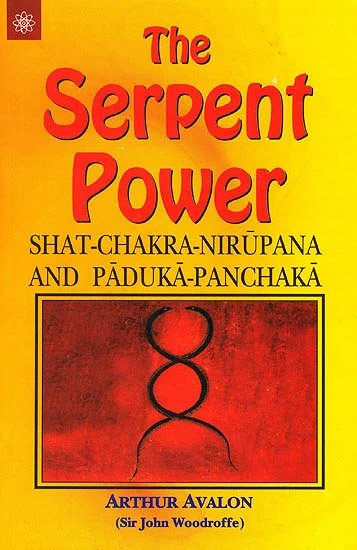Shat-cakra-nirupana (the six bodily centres)
by Arthur Avalon | 1919 | 46,735 words | ISBN-10: 8178223783 | ISBN-13: 9788178223780
This is the English translation of the Shat-cakra-nirupana, or “description of the six centres”, representing an ancient book on yoga written in the 16th century by Purnananda from Bengal. This book investigates the six bodily centres famously known as Chakras. The text however actually forms the sixth chapter of the Shri-tattva-cintamani, compiled...
Verse 27
Sanskrit text, Unicode transliteration, Word-for-word and English translation of verse 27:
योगीशो भवति प्रियात्प्रियतमः कान्ताकुलस्यानिशं
ज्ञानिशो'पि कृति जितेन्द्रियगणो ध्यानावधानक्षमः ।
गद्यैः पद्यपदादिभिश्च सततं कव्याम्बुधारावहो
लक्ष्मिरङ्गणदैवतः परपुरे शक्तः प्रवेष्टुं क्षणात् ॥ २७ ॥yogīśo bhavati priyātpriyatamaḥ kāntākulasyāniśaṃ
jñāniśo'pi kṛti jitendriyagaṇo dhyānāvadhānakṣamaḥ |
gadyaiḥ padyapadādibhiśca satataṃ kavyāmbudhārāvaho
lakṣmiraṅgaṇadaivataḥ parapure śaktaḥ praveṣṭuṃ kṣaṇāt || 27 ||Foremost among Yogīs, he ever is dearer than the dearest to women,[1] He is pre-eminently wise and full of noble deeds. His senses are completely under control. His mind in its intense concentration is engrossed in thoughts of the Brahman. His inspired speech flows like a stream of (clear) water. He is like the Devatā who is the beloved of Lakṣmī[2] and he is able at will to enter another’s body.[3]
Commentary by Śrī-Kālīcaraṇa:
“Dearer than the dearest to women” (Priyāt priyatamaḥ kāntākulasya) —i.e., because he is skilful to please them.[4]
“His senses are completely under control” (Jitendriya-gaṇa)—i.e., he is one who should be counted among those that have completely subjugated their senses.
“His mind.... Brahman” (Dhyānāvadhāna-kṣamaḥ).—Dhyāna is Brahma-cintana, and Avadhāna means steady and intense concentration of the mind. The Yogī is capable of both.
“His inspired speech flows like a stream of (clear) water” (Kāvyāṃbudhārā-vaha).—The flow of his speech is compared to an uninterrupted flow of water, and it is he from whom it flows.
“He is like the Devatā who is the beloved of Lakṣmī” (Lakṣmī-raṅgaṇa- daivataḥ).—He becomes like the Deva who is the beloved of Lakṣmī. Lakṣmī, the Devi of Prosperity, is the spouse of Viṣṇu. This compound word is capable of another meaning. It may mean: One who has enjoyed all prosperity (Lakṣmī) and all good fortune (Raṅgaṇa) in this world and who goes along the path of liberation. It has therefore been said:—“Having enjoyed in this world the best of pleasure, he in the end goes to the abode of Liberation.”[5]
“Another's body” (Para-pure).—He is able at will to enter the enemy’s fort or citadel (Durga), even though guarded and rendered difficult of access. And he gains power by which he may render himself invisible, fly across the sky, and other similar powers. It may also mean “another man’s body”.[6]
Footnotes and references:
[1]:
Priyāt priyatamaḥ—more beloved than those that are dear to them.
[2]:
[5]:
Iha bhuktvā varan bhogān ante mukti-padaṃ vrajet.
[6]:
The Siddhi by which Yogīs transfer themselves into another’s body, as Śaṃkarācārya is said to have done. The latter interpretation is preferable, for such an one will not have enemies, or if he have will not seek to overcome them.
